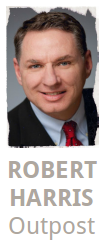
I had a nice one hour chat with Independent Party of Oregon candidate for Governor Cliff Thomason this week in Beaverton.
Before I met Cliff, I read his website to see what issues were important for his campaign.
Local Control: This is an issue that Cliff highlighted in our conversation as well. And it seems to be near the top of his list. He wants to return more control of schools to the school districts. And he proposes that a large percentage of lottery dollars generated in each county be returned to the counties as sort of block grants. Now, the lottery dollars are used for economic development programs as directed by the State office in Salem.
Green Jobs: However, the green jobs he’s referring to are more “green” as in chlorophyll rather than “green” as in Solyndra or BETC. He wants to promote the wine industry and industrial hemp. As well as agri-tainment, which would incorporate agricultural experiences and tourism.
A State Bank: A progressive populist idea that is gaining traction statewide. Did I mention that Cliff is an industrial hemp farmer? The marijuana industry needs to have secure, safe, lawful banking services. The idea of a State Bank has been around for a while, and offers some real benefits. With the legalization of Mariuana, the State Bank idea has additional potential uses that no other entity could provide.
Anti Corruption: Cliff’s anti corruption page on his website is called “Kitzhaber Crew” where he talks about the corruption of our system by the good old boys and girls of the Democratic Party.
My first impression of Cliff is that he’s friendly, open and astute. He’s a businessman from Grants Pass. I’ve met a lot of businesspersons from middle class suburban and small to mid sized towns. They are pillars of their communities, members of their Chambers of Commerce and they fill the volunteer positions on city boards and commissions. Regardless of their political ideology, they love their communities and care about their neighbors. They are also much smarter than many urban denizens and deep blue politicos who live east of the tunnel and west of I-205 believe. Maybe it’s the loafers, camelhair blazers and American flag pins on the lapel that confuses some PDXrs.
We talked for an hour and could have talked longer. He was most intense when he talked about the urban rural divide and the need for more local control. And how different Josephine County and Grants Pass are to Portland and the upper valley. He even talked about how different Grants Pass is from rural Josephine County.
He had just come back from a KBOO podcast recording, and was wondering how well he did. He was asked about his position on the minimum wage, which is an escalating minimum wage based on age. We debated that for a minute, I don’t think I convinced him of my position, and he didn’t convince me of his. But at least he has thought about the minimum wage and the need to increase it for working families, while also considering the effect on non metropolitan employers.
I could tell many of his economic ideas were conservative and asked him what differentiated his candidacy from a GOP candidate. He admitted that it was harder to find many economic policy differences, however he said that social issues are not on his agenda or To Do list. He wanted to find common ground, not wedge issues that divide people.
Cliff comes from the “Rindependent” part of the IPO. That is, those slightly to moderately right of center populists who are economically conservative and socially agnostic or even socially libertarian. (As opposed to the “LIndependent” wing of the IPO, progressive populists who prefer Bernie Sanders to Hillary Clinton. Or to “MIndependent” IPO members who are policy moderate populists who seek to reform the democratic process itself as the way to improve substantive policy.)
Cliff will appeal to a large number of IPO voters from rural and small town areas, especially in southern and eastern Oregon. But his support for a State bank should also draw support from progressive independents as well as the powerful marijuana industry. His anti corruption message will win support from all IPO members. Heck, all Oregonians. But, I’d suggest he refocus it onto systemic corruption that both the Democratic and Republican Parties and their donor bases benefit from. (But that’s the MIndependent in me speaking there)
He should rethink his position on the minimum wage. A better option would be to simply allow local governments to increase their minimum wage to up to $15/hour. And/or an increase in the Oregon earned income tax credit which would focus wage increases on working families living below the poverty level.
He needs to address more of the concerns of urban voters. I get that a lot of rural voters rightly believe that the State Government ignores issues important to them. The way to highlight that is by making sure you talk about urban and rural issues. Show us how it’s done. The cost of housing and homelessness – issues that effect mostly urban areas – are issues that our governor has to address. He needs to remember that he still needs the votes of LIndependents in the IPO primary and moderates and urban voters in the general election.
How will Cliff fare?
With the Democrats offering Kate Brown, and the GOP so far offering just Dr. Bud Pierce, the IPO should be pleased that Cliff Thomason is running for its nomination for Oregon Governor. He certainly represents a large number of IPO members philosophically and has some interesting ideas that Oregonians from all over the political spectrum could support. Particularly his backing for a State Bank and more green jobs.







